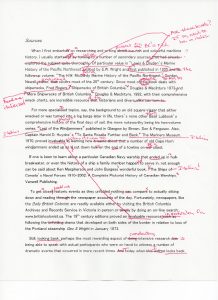So here I was — proud as a new parent — with a finished manuscript in a tidy stack on my desk. Virginal white paper, appropriate font, neat margins, properly paginated and oh so vulnerable.
But now I faced that big jump from personal writing to potential exposure to the whole wide world. And, like many a new parent, I wondered how this baby of mine would ever walk on its own.
To take that first step the old school method says to look for publishers who specialize in your particular genre — fiction, poetry, memoir or essay — and write a letter of inquiry hoping that one of them will be interested and request a sample chapter or two which may then lead to a contract. Ah, hope, the writers favourite drug.
When I was through the second draft of The Four Storey Forest I did just that — found publishers who promoted West Coast and Vancouver Island writers. I sent out letters of inquiry and anxiously walked to the mailbox every day in anticipation. Out of the ten letters I wrote, I got not one response.
Refusing to be discouraged, I carried on re-writing, searching for a publisher and following suggestions from published authors.
Simultaneously, I began exploring the world of self-publishing. I was leery of this due to the stigma associated with the term “vanity press” and the pure drivel it often spawns. I thought if my writing made it through the scrutiny of a publisher, it would surely be better. I learned there are editorial contributions and there is publishing and while I thought the two were inextricable, they are not!
Nearing what I thought was a completed book, I sought out freelance editors. You get what you pay for so I’d advise anyone taking this route to shop around and check references thoroughly. My first “editor” seemed a little too interested in signing me up for production services as he heaped unearned praise on my raw and truly un-publishable work.
At the same time, I looked into self-publishing. Two sources of good information were the Vancouver Desktop Publishing Centre and Printorium Bookworks. The first is connected with the wonderful magazine Geist, which is a great read in itself. The second is a print shop that has an excellent how-to guide for self-publishing. However, I was not yet convinced.
In self-publishing, the author retains full responsibility for and control of content, cover design, and distribution/promotion. This obviously means a lot more work. It is an odd paradox; writing is a solitary anti-social act, yet merchandising the finished self-published work requires one to stand up and become a shameless hustler. Some can do this, others cannot.
Another factor is that many literary contests do not accept self-published books simply because of my original fear — so much dross on paper. Nor are self-published works eligible for the most of the few grants available.
So the choice is: sell your soul to a publishing house and in return for the pittance earned, gain professional editorial support and wider publicity, sales and distribution but relinquish a certain amount of income and control; or buy what proofreading and critiquing you need and opt for self-publishing, accepting the joys and sorrows it may bring.

For The Four Storey Forest I was fortunate enough to discover a third way. Through a network of other writers I found a Comox Valley “mom and pop” publishing company who had put out a few books of scholarly note and who were interested in branching out to niche markets with new writers.
So Poplar Publishing did the layout, final proofing, some editing and worked with the printer. The real nuts and bolts stuff. Collectively we created the cover design. Promotion and publicity are my responsibility as is shipping. My publisher has a web page with a PayPal service which means my book has an e‑life. My book baby has taken its first steps out into the world.
I recently started working on a novel, breathing life into the second draft of a manuscript that has been collecting dust for longer than I care to admit. However, it is still a good story and, when finished, I’ll go back to Poplar Publishing and hope they’ll take it on. There’s that word again. Hope.

